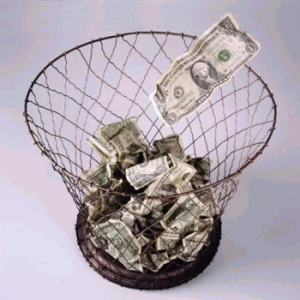 A couple of weeks ago, I had the opportunity to talk to my dad’s second cousin (no idea what relation that is to me), who is a sales rep for Ericsson, one of the largest mobile network
A couple of weeks ago, I had the opportunity to talk to my dad’s second cousin (no idea what relation that is to me), who is a sales rep for Ericsson, one of the largest mobile network
providers in the world. Of course I asked him what some of his best techniques were – especially since he said that he and his team had just closed a $1 BILLION sale.
As we talked about various tactics and philosophies, the story that stuck out most to me actually had to do more with buying, which is just the other side of the selling coin.
 In bargain-based societies (ie Asia), Lars said that it was a common practice to refer to the person you’re trying to do business with as your friend, even if you just met the person ten minutes ago. As we all would assume, he knows what price he’s willing to pay before the meeting starts. But as negotiations begin, it’s not always that easy to close on what you want.
In bargain-based societies (ie Asia), Lars said that it was a common practice to refer to the person you’re trying to do business with as your friend, even if you just met the person ten minutes ago. As we all would assume, he knows what price he’s willing to pay before the meeting starts. But as negotiations begin, it’s not always that easy to close on what you want.
 So as the parties haggle back and forth, he names the price he wants to pay. Usually, the seller responds with, “I can’t sell it to you at that price – I’ll lose money!” To which Lars answers sincerely, “Oh okay – you’re my friend, so I don’t want you to lose money. I’ll just take my business elsewhere then.”
So as the parties haggle back and forth, he names the price he wants to pay. Usually, the seller responds with, “I can’t sell it to you at that price – I’ll lose money!” To which Lars answers sincerely, “Oh okay – you’re my friend, so I don’t want you to lose money. I’ll just take my business elsewhere then.”
 At this point, the seller basically has no choice but to offer him that service at (or almost exactly at) the price he wants to pay because he sees that there are other players in this game. Does that actually work? According to Lars, he closes deals (as the buyer!) using this technique at least nine times out of ten.
At this point, the seller basically has no choice but to offer him that service at (or almost exactly at) the price he wants to pay because he sees that there are other players in this game. Does that actually work? According to Lars, he closes deals (as the buyer!) using this technique at least nine times out of ten.
So for the seller, is this a case when trying to empathize and personally connect with the buyer (ie ‘my friend’) backfires?
Did he talk about this technique working in all sales or is this something very specific to the industry that he is in. It seems like a really weird dynamic.
I love this technique, as it makes sense on a variety of levels. The interesting thing to me is that it almost seems like playing the guilt card on someone you just met. He said this technique works for him in Asia, I’d be interested to hear if it works for him in America.
This is such an interesting strategy. While I was in Haiti, many of the street vendors would do this. They would treat you like their best friend and try to get you to buy their products. I think the success may depend on the customer. Those vendors in Haiti knew that they could draw the mission teams in if they treated them like friends but for businessmen, on a mission, it may not work as well.
This is a very interesting strategy. It is interesting that friendship is established so quickly in this country. It is also interesting that once this “friendship” is established, it can immediately be used as a bargaining tool. I suppose I am of a different mindset. I believe that if someone is truly your friend (and maybe this only applies to best friends) that you would pay them full price for things and they would do the same for you. This is because as friends, you want the other person to do well and they want the likewise. I forget where I heard this but it had a lasting impact on me.
Wow, it sounds like you have successful friends Karolina! I am glad that you posted about buying, because buying uses the same principles as selling. It is important to negotiate to get the best price when on the purchasing side of a deal. The “friend” technique sounds very unique and effective.